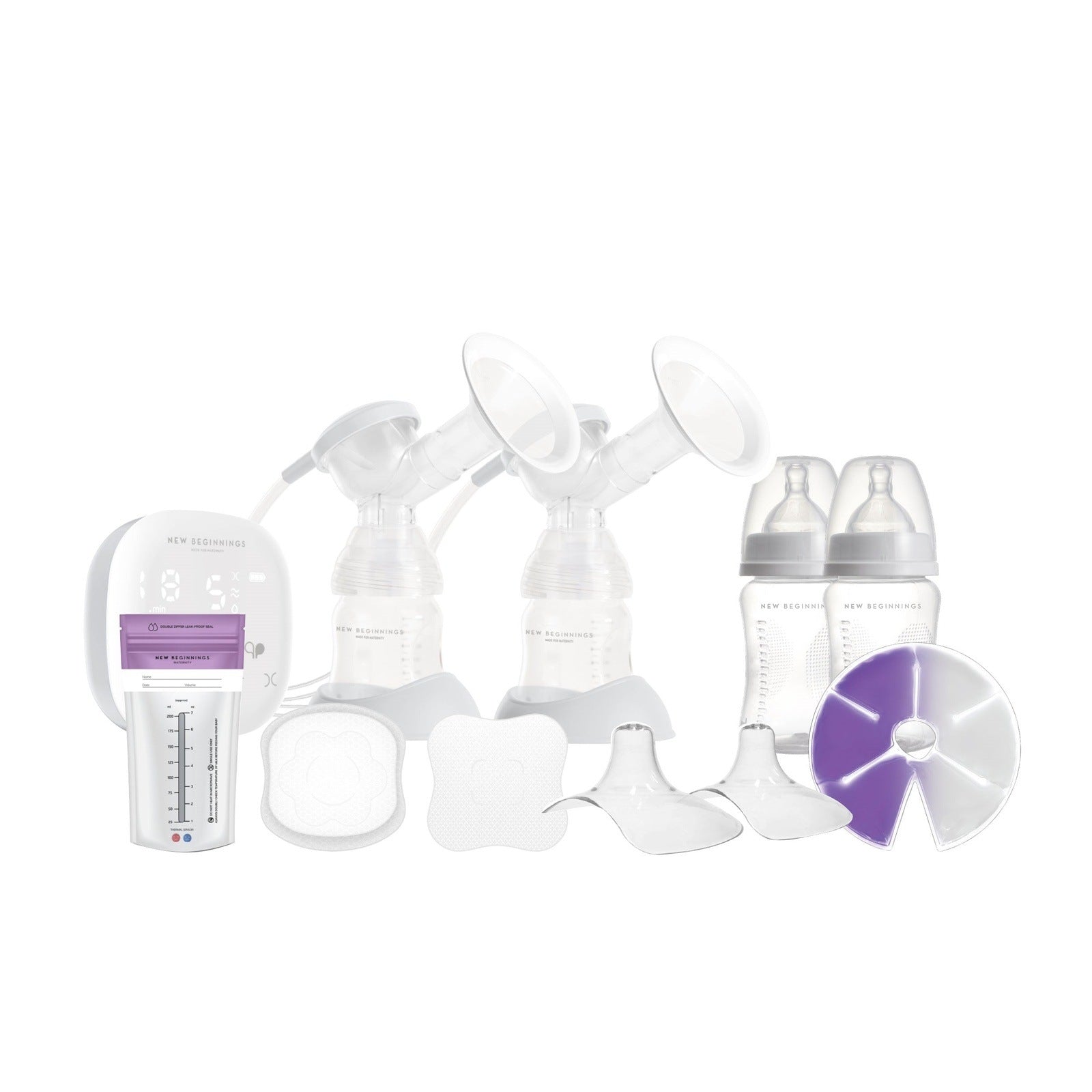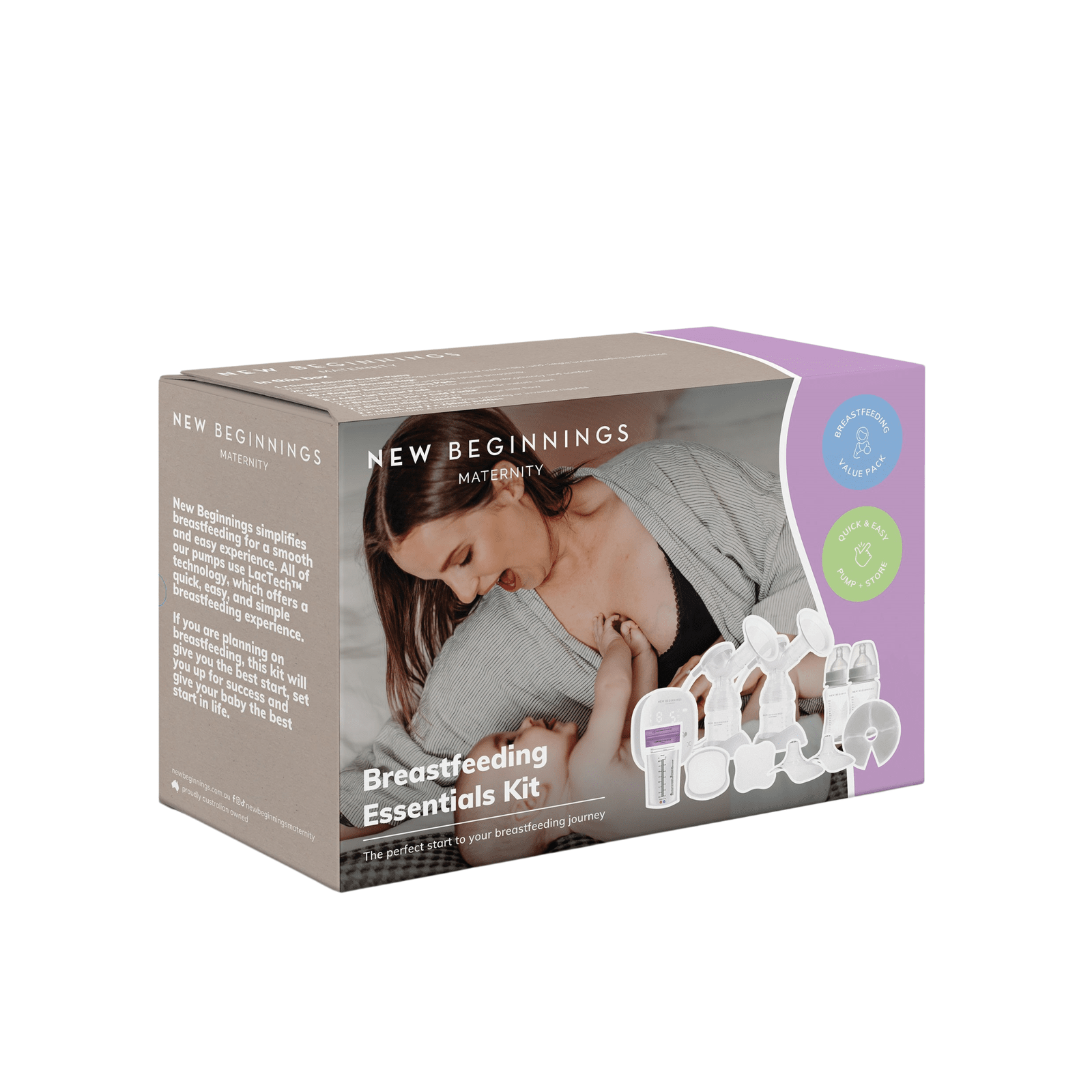We all know the feeling – those late-night baby cries that pierce through your sleep like a fire alarm. It's enough to make even the most enthusiastic parent feel utterly drained. But before you despair, take a deep breath! This phase, while demanding, is temporary. And with a few helpful tactics, you can turn those chaotic nights into smoother sailing (and maybe even some shut-eye!).
Why the Nighttime Feedings?
Those early weeks with a newborn can feel like a whirlwind of feedings! Tiny tummies mean frequent pit stops every 2-3 hours, day and night. Growth spurts can turn these hungry cries into a full-blown chorus, especially at night.
Sucking can be a comfort for your little one, like a sleepytime security blanket. So, a late-night feed might be more about snuggles and calming them down than needing a full refill.
Nighttime Feeding Hacks for Tired Parents
-
Nighttime Feeding Station:
Set up a designated feeding area near the crib with all the essentials—diapers, a clean changing pad, bottles (if formula-feeding), burp cloths and wipes. This minimises nighttime fumbling and keeps you focused on your feeding superhero duties.
Esther commented on our wipes, saying, “These wipes are all I use for my babe! They are the only dry bamboo wipes you can buy in Aus. I definitely recommend them to any new parent who wants to skip the chemicals you find in normal wipes. I either spray with boiled water (at home) or even put boiled water on a few in a soft pouch for the nappy bag. Very soft and Highly recommend!”
-
Prepare Bottles in Advance:
If formula-feeding, consider pre-measuring formula and water into bottles for the night. This will save precious time during sleepy feedings and allow you to focus solely on your little one. Our sterilising essentials kit can be your go-to here.
-
Dim the Lights:
Nighttime feedings are all about snuggles and sleepy vibes. Keep the room nice and dim, like a mini starry night sky. This helps your little one stay drowsy and drift back to dreamland faster, making it a win-win for everyone (especially those tired eyes!)

Nighttime Feeding Efficiency
-
Feeding Cues:
It's time to level up your baby-speak skills! Learn your baby's hunger cues. They might become a "rooting" champion (searching for the milk bar!), throw a tiny fuss-fit, or become a hand-to-mouth explorer. Crack this code, and you'll be a feeding pro, keeping those precious cries at bay (and your ears happy!).
-
Pacifier Power:
For some babies, a pacifier is like a magic sleep button after feeding. It's like a sweet little slumber switch! It can help them settle and fall back asleep without needing more milk.
-
Keep it Calm and Quiet:
Keep things peaceful and calm during feeding time. Chattering or bright lights can alert your little one and make drifting off to sleep a struggle. Feeling relaxed helps your baby relax, too! Create a playlist with calming music, or try some meditation while feeding. Just remember the headphones to keep the peace!

Sharing the Load and Those Precious Snuggles
Have you got a partner in crime? Tag team those late-night feedings! This way, you can both catch some sleep (even if it's in broken chunks). Pump some breast milk before bed, Mama Bear; this way, dada can use this milk for his first shift on the late-night feed. We have manual, single or double Breast Pump options to help you finish the job. We also have Breast Milk Storage Bags, a tremendously nifty way to store and transport the milk.
When Will My Baby Sleep Through the Night? The Real Deal
We all dream of that magical night when our babies sleep like champs. But the truth is, there's no one-size-fits-all answer.
- Newborn - 4 Months: Frequent feeds every 2-3 hours, day and night.
- 4-6 Months: Some babies sleep longer stretches (5-6 hours) due to maturing digestion and sleep cycles.
- 6-12 Months: Formula-fed babies may sleep through the night, while breastfed babies may still need one nighttime feed. For formula-fed babies, phasing out night feeds is suitable for babies 6+ months and onwards (raisingchildren.net.au).
- 12 Months +: Most babies can go all night without feeding, with some exceptions. It's okay to start night weaning healthy breastfed children from 12+ months and onwards (raisingchildren.net.au).
The Bottom Line: Patience is Key
Don't compare your baby's sleep to others. Some babies are natural sleepers, while others need more frequent feedings for longer. Focus on creating a bedtime routine. If you're worried about your baby's sleep or feeling overwhelmed by those constant nighttime wake-ups, don't hesitate to talk to your Pediatrician or sleep consultant and ensure you are also looking after your self-care. Check out one of our previous blogs on self-care after birth for more tips.
Remember, mama (or dad), you've got this! Nighttime feedings might be a thing for a while, but with some patience and a sound support system, you'll conquer them and emerge victorious (and maybe a little sleep-deprived, but that's okay, too!). Now go forth and get some rest – you've earned it!









